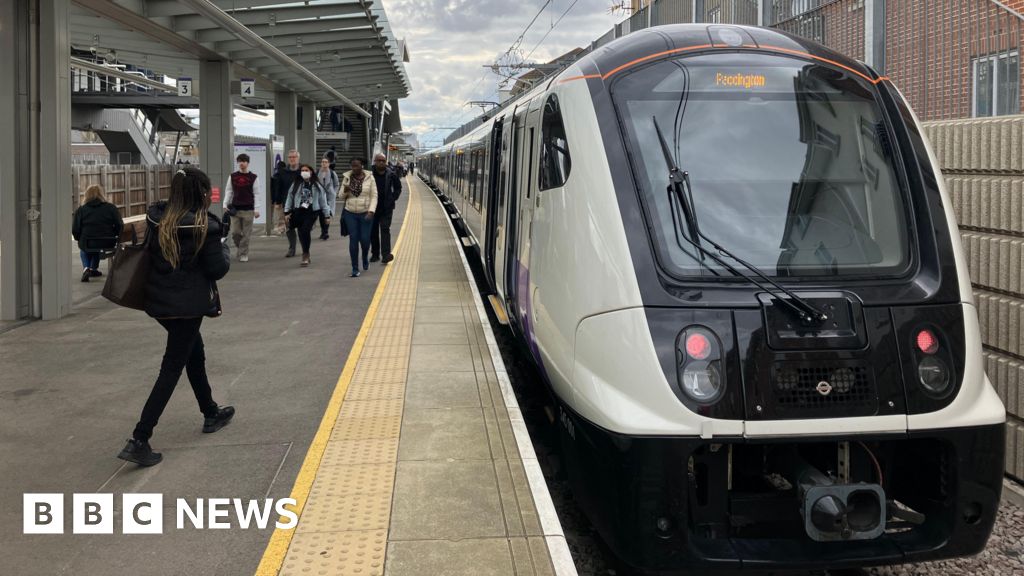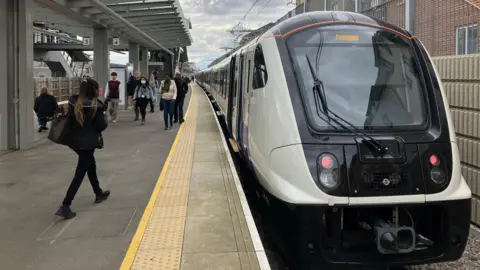Football
Elizabeth line: Toiletless trains blamed for forced door openings

 BBC
BBCPassengers trapped on Elizabeth line trains for up to four hours were “violently trying to force the doors open” due to a lack of onboard toilets, a report has found.
Some people “started misbehaving” after trains became stranded near Paddington in west London in December, with the absence of lavatories “a contributing factor to passenger self-evacuation”.
Their actions contrasted with passengers on two Heathrow Express trains and a Great Western Railway service, which did have toilets, although they eventually became “no longer sanitary”.
It said the Elizabeth line incident was a “frustrating and chaotic experience”. Transport for London (TfL) said adding toilets would be “extremely complex”.
Overhead electric cables were damaged in Ladbroke Grove on 7 December, leaving many in cold, dark carriages “in no man’s land”, according to one passenger quoted in the report.
There are no toilets on the Elizabeth line’s £1bn fleet of trains despite some timetabled journeys lasting 75 minutes, which TfL has previously said allows for extra capacity.
The report for watchdog Transport Focus and regulator the Office of Rail and Road (ORR) stated: “GWR and Heathrow Express passengers had toilets and charging facilities onboard that, at first, passengers could access during the incident.
“The Elizabeth line, on the other hand, is not equipped with such facilities – which later appeared to be a contributing factor to the passenger self-evacuation.
“Additionally, travellers on both GWR and Heathrow Express initially had access to refreshments (mainy bottles of water), whereas those on the Elizabeth line did not.”
There were also what the report called “key takeouts” from the incident, namely:
- Passengers were reassured when there were regular announcements
- Customers felt anxious when no train staff or any industry officials were present
- Passengers felt that their safety and well-being was affected by a lack of organisation and contingency plans
- In the absence of new updates, passengers found repetition of old information more annoying than helpful
ORR director of strategy, policy and reform Stephanie Tobyn said: “Being stranded on a train for a lengthy period of time is thankfully rare, but when it does happen, rail operators and Network Rail need to work together quickly to assess the situation from a passenger perspective and create a workable plan to safely manage the situation.”
Transport Focus director Natasha Grice said: “Passengers can reasonably expect that the rail industry responds faster and more effectively to stranded trains situations.”
Howard Smith, director of the Elizabeth line for TfL, said: “The Elizabeth line is a high-frequency metro-style service and, as such, toilets are not provided on the train as adding toilets would be extremely complex, costly and would displace approximately 600 passengers per hour.
“Our priority is to resolve issues as soon as possible.
“Initiatives include faster identification and planned evacuation of stranded trains, more regular announcements, deploying volunteers to support customers onboard, and handing out information for onward travel, compensation and redress.”










